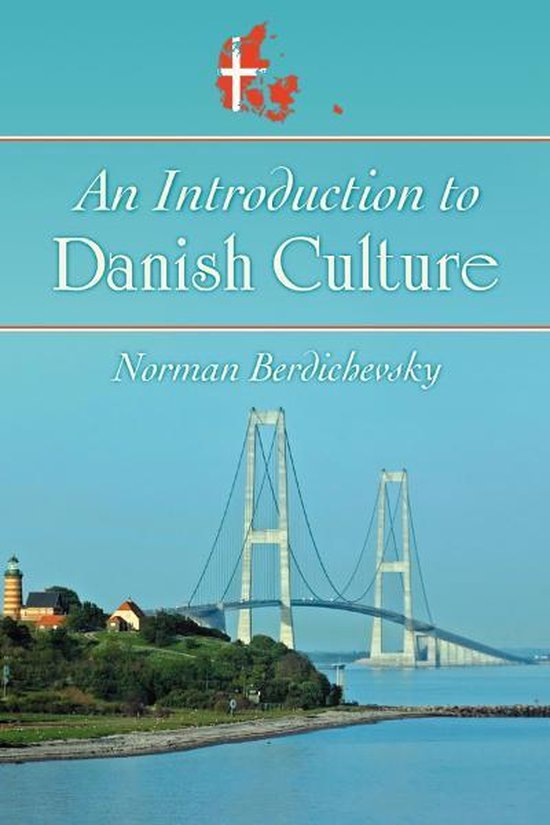
I found this book at the university's library. The last years of travelling — with momentarily settling — highlighted the importance of understanding the local culture. Given my current whereabouts, well — yes. Denmark is interesting.
The book is maybe a bit dated, but some ideas were too good to pass on. There is some context on Denmark's relationship with England, and a curious quote that asserts how Churchill admired the Danes as masters of agriculture —, how much wind power is there in the territory, or how Fyn (the island in which Odense is situated) can be seen, in a physical but also rather existential sense, as an intermediate place between mainland Jutland and Copenhagen.
It would not be a proper dive into Danish culture without mentioning the concept of hygge — which is usually prone to outsider skepticism, and this case was no exception (some other authors go deeper on the matter, and this became ever more relevant after the proliferation of the idea of Danes being the happiest people in world — but I don't think it was the case at the time of publishing of this particular book). There's also a list of musical artists whom defied the traditional view of Denmark among the Danes — a good resource for further exploration of the culture.
some assorted ideas on the Danish language
On the Danish language, the author brings three ideas that I cherish, which help frame a language that comes across as fundamentally different from my most recent endeavour. To begin with, the author accurately places it close to German and Dutch, highlighting the similarities in grammar (albeit much simpler than German) and vocabulary...
Few but the most adventurous and uninhibited short-term foreigners visiting in Denmark or the Netherlands make an attempt to penetrate the veil of the language barrier. This is unfortunate, in that Danish is, perhaps, one of the least difficult languages for native English speakers to acquire.
...and its subtle veering towards understatement and irony. The list of unstressed adverbs (whatever that may be!) is helpful, too: jo is a common appearance, and it does indeed seem like Danish makes heavy use of these apparently simple markers of tone in speech.
No matter how well one learns a language from books and videos, its everyday use in conversation cannot be mastered fully until one appreciates how native speakers use it to reflect aspects of national traits and social relations that have developed over many centuries.
With Danish, this means an appreciation of the many untranslatable words, especially unstressed adverbs such as vel, jo, da, mon, dog, nu, and nok, that lend a special shade to the meaning of the whole sentence. These can be translated in English only by much longer expressions such as indeed, I shouldn't wonder, really, well, but, certainly, more or less, however and probably.
FRUEN: De kan vel også lave ganke almindelig hverdagsmad?
KOKKEPIGE: Ja, frue, men jeg bryder mig ikke om at spise den.
LADY OF THE HOUSE: You can certainly also make just plain, ordinary, everyday food, can't you?
Cook (a young girl): Yes, madam, but I don't care to eat it.
The most interesting one — my favourite, due to its earnest attempt at conveying an intrinsic characteristic of the language which is unacessible to those who stay on the outer of it — I will reproduce in full, with more of the author's context.
As one of a handful of individuals with professional experience working with the two languages and the economic, political and social realities of Denmark and Israel, I was particularly delighted with the remarks of the well-known Danish Jewish journalist Herbert Pundik, for many years the executive editor of the Copenhagen daily newspaper Politiken, who, upon receiving the Modersmål (Mother Language) Award for his proficient use of Danish, spoke of his experiences as a correspondent for many years in Israel. I share with Pundik many years' residence and involvement in the two nations and languages and so fully understand and appreciate him when he remarked:
Danish is good for your nerves.... Danish lends itself only poorly to rhetoric. Pathos lies quite distant from the tones of the language. Many other languages are so dramatic that they exert a beguiling effect on the listeners. It is not impossible but very difficult to mislead listeners when one speaks Danish, for it is a language that uncovers falsehood.... In the 15 years my wife and I lived in Israel, often under extremely stressful conditions without a regular physical contact with Denmark, it was a balm for the soul to be able to flee from the unstoppable assault of intensive seriousness to the Danish language's more restrained tones and understatement. Danish had a calming effect on our surroundings.
| Title | An Introduction to Danish Culture |
|---|---|
| Author | Norman Berdichevsky |
| Publisher | McFarland & Company, Inc., Publishers |